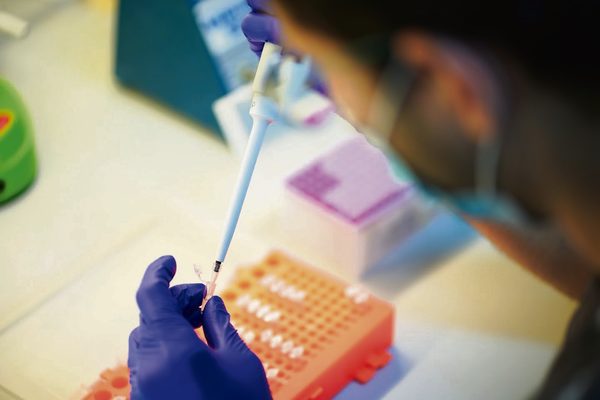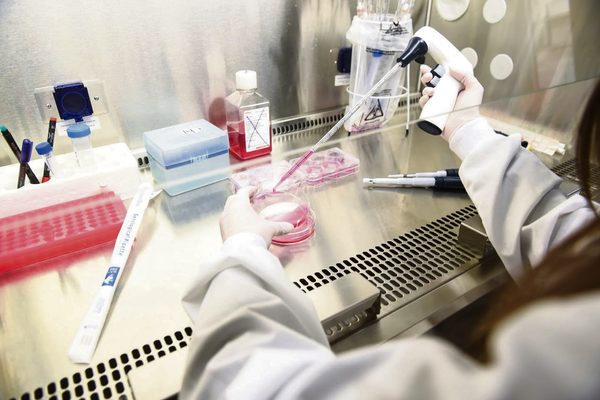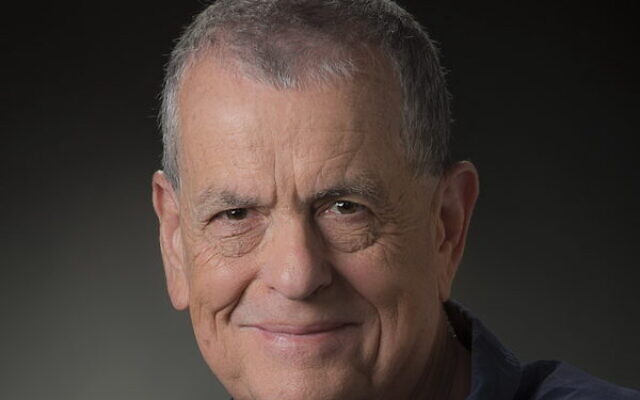The frontier of cancer research
The focus of RTICC researchers’ activities might include everything from tumour metastasis, to drug resistance, to personalised medicine, to novel drug design and beyond.
What are the characteristics of a truly world-class cancer research centre? Globally renowned scientists, pioneering research programs, and a steady record of publications appearing in prestigious journals. The Rappaport Technion Integrated Cancer Centre (RTICC), currently in its eighth year of operations at the Technion, embodies this ideal.
Founded by Technion distinguished professor and 2004 Nobel laureate Aaron Ciechanover, and led by Professor Yuval Shaked, the RTICC is distinguished by its cross-pollination of 55 collaborative Technion principal investigators working in 11 Technion faculties, and an additional 13 principal investigators working at four of the Technion’s affiliated hospitals. The academic affiliation of physicians in these health care units encourages clinical research and furthers the mission of the RTICC. The activities being conducted by investigators at the Technion itself, as well as at the university’s affiliated hospitals, ensures the breadth of RTICC work encompasses both pure research and clinical aspects of cancer care.
The result of this diversity of scientific backgrounds is an environment in which researchers academically prosper while pursuing exciting ideas within three major areas: basic cancer research, translating research into practical therapies, and innovating new technology that allows therapies to be applied in the clinic. The focus of RTICC researchers’ activities might include everything from tumour metastasis, to drug resistance, to personalised medicine, to novel drug design and beyond.

Unique collaborations are driving cancer-related innovation
When Associate Professor Avi Schroeder, a member of the Wolfson Faculty of Chemical Engineering and head of the Louis Family Laboratory for Targeted Drug Delivery and Personalised Medicine Technologies, encountered a challenge differentiating between live cells extracted from tumours and dead cells inside them, assistance came from Shaked. He provided valuable laboratory assistance that not only resolved the problem but pointed toward a new technique enhancing the study of relatively hard-to-penetrate tumours, such as those associated with pancreatic cancer.
“The Rappaport Technion Integrated Cancer Centre’s collaborative and cross-disciplinary approach to cancer research – involving outstanding medical doctors, engineers and basic scientists – is unique,” says Schroeder.
“These collaborations are taking many forms, with specialists in one area regularly supporting research in others.”

Further collaboration between Schroeder and Shaked resulted in the creation of barcoded nanoparticles, which are capable of conveying small amounts of medicine to tumour sites, and help reveal which medications work and which do not, while also enabling the creation of a potency chart for various medications.
When students in Schroeder’s laboratory noticed that nanoparticles administered to female mice were accumulating in the ovaries, they sought clarity from Associate Professor Irit Ben-Aharon, the head of the Division of Oncology at Rambam Health Care Campus (the largest hospital, cancer centre and radiation oncology facility in northern Israel).
Thanks to these RTICC collaborations, not only can doctors now leverage the biodistribution of nanoparticles to different body regions to treat various conditions, but a new field has been created in the process: gender nanotechnology, which explores how patients’ gender influences the dynamics of nanoparticles inside the body, with applications to breast, pancreatic and ovarian cancer.

Another form of collaboration involves cooperation between the RTICC and companies harnessing its advances. OncoHost, which focuses on precision medicine oncology, was founded by Shaked and is based on work he has performed at the Technion for the last 10 years. By testing patients’ blood samples before and during treatment, the company can analyse specific elements in plasma that can help explain the regrowth of tumours. The company then uses bioinformatic analysis and machine learning to differentiate between patients who respond to specific treatments and those who do not, allowing the generation of response prediction reports and suggestions for additional combinatorial treatments.
To learn more or to contribute tothe Rappaport Technion Integrated Cancer Centre, visit austechnion.com/
The RTICC is currently in its eighth year of operation.
RTICC director, Professor Yuval Shaked.


comments